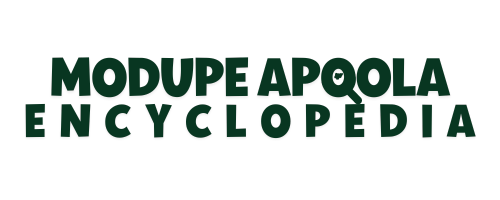
Egba people: According to titleholder of the land and author, F.I Sotunde, it is undocumented how the people of Egba came to inhabit the geographical area known as the Egba forest. What is relatively known for sure is that the political turmoil following the fall of the Oyo Empire indirectly led to their migration to the place they now call home. Originally, the Egba had no particular distinguishing characteristics from other Yoruba people and they were not known to have participated in any war until a man from one of their villages, Lisabi, set up a militia group called Olorogun, putting some of their men in harms way in a revolt against the Alaafin of Oyo who was their despotic sovereign. The military success that followed, the increasing confidence and consequent persecution of the people contributed in their self-awareness.
Egba forest
Originally, the Egba people did not live together as they now do in Abeokuta. Their tribe consisted of over a hundred villages clustered within a territory stretching from River Oba from the north to EbuteMetta on the south and from Osun River on the east to Ipokira with Yewa River on the west. This kingdom was divided into four principal provinces; Ake, Oke-Ona, Gbagura and Owu. Each of these provinces have their own Oba but it appears Alake of Ake enjoys the primacy of them all due to reasons which included the relationship shared with a old time Alake, brother to Alaafin of the time, with whom their mother lived. The mother, Omonide (probably also called Ejo) died and was buried in Ake. Every new Alaafin for this reason sends many valuables to Ake, thereby inferring the importance of the province among others.
Alake

The position of the Alake in Abeokuta was to be statutorily confirmed in 1898 with the promulgation of Egba United Government, which was at the time one of the very few independent African states during the European scramble for Africa. Oke-Ona and the Gbagura people are Egba too, but it is the fourth which made the so-called four corners of the town that shows a curious array. They are not Egba originally, but they have shared so much history with the Egba that they can be admissibly called one. Owu, like Ake have an ancestor that was close to Oduduwa, the accepted father of the Yoruba. Olowu, their progenitor was grandson of Oduduwa. They have initially fallen under the rulership of Alaafin like almost all other Yoruba tribes because Alaafin Oranyan, although the last born, had inherited the most political element of their father, Oduduwa, thereby achieving superiority from the start.
Civilisation

Whatever it is that distinguishes the people of Abeokuta from other Yoruba people should be originated from their early exposure to the benevolent strain of the British stock. Their 19th Century statesman, Sodeke had foresightedly approved of missionary activities. The early settlers from Sierra Leone came to Abeokuta and even attempted to control the affairs of Lagos from there. The setback brought about by the Ifole Uprising in which foreigners were expelled from the town however, brought a check to the people’s progress. The Egbas were intellectually in the forefront and way ahead of other Yoruba groups till after the mid 20th Century.
